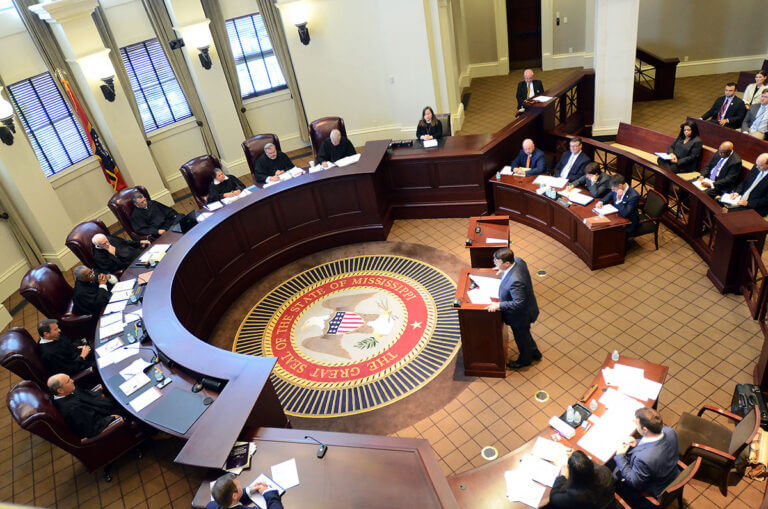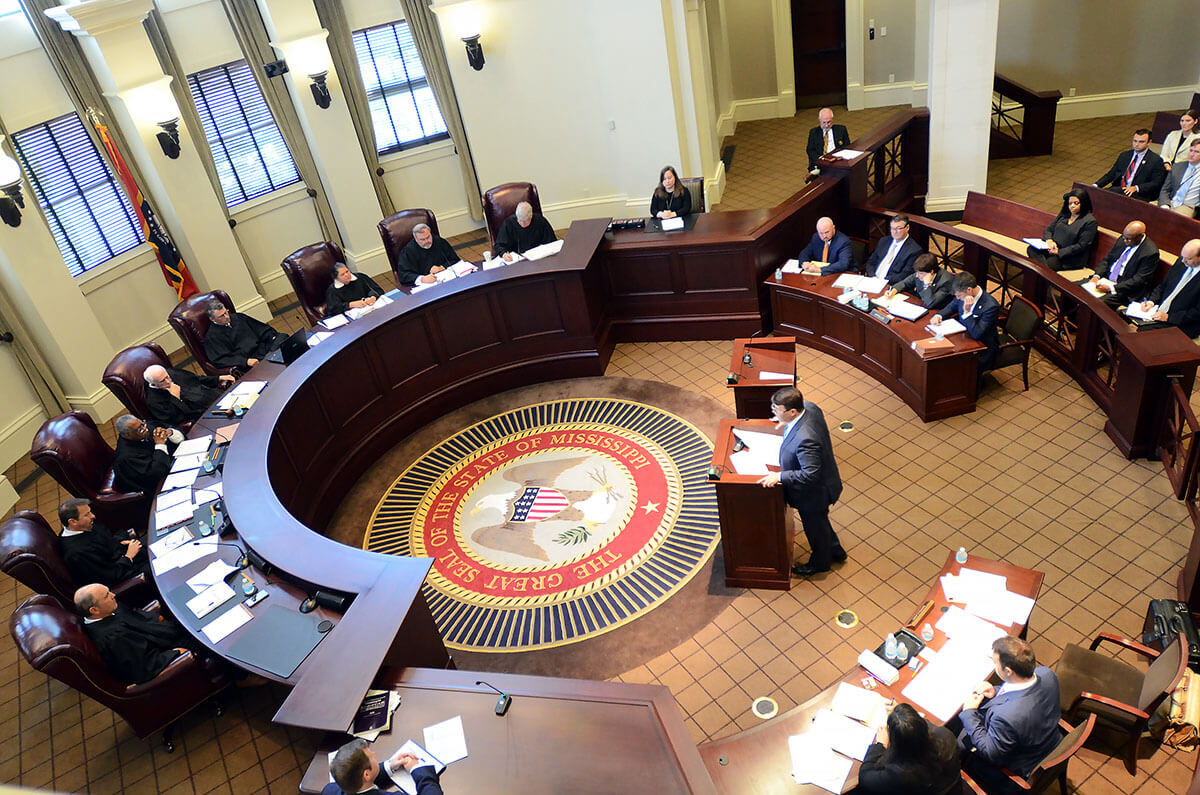

The future makeup of the Mississippi judiciary and the state Legislature lies in the hands of the U.S. Supreme Court.
The nation’s highest court is considering three redistricting cases, including a Mississippi case, that could significantly alter the Voting Rights Act, a federal law stemming from the Civil Rights era that Black Mississippians have used for decades to prevent discrimination at the ballot box.
Attorney General Lynn Fitch last month appealed a ruling from U.S. District Court Judge Sharion Aycock of Mississippi. The ruling concluded that state lawmakers must redraw the state Supreme Court districts because they weaken Black voting strength.
That ruling, which forbids the state from using those maps in future Mississippi Supreme Court elections, is pending before the U.S. 5th Circuit Court of Appeals. However, the appellate court has paused all proceedings in the appeal until the U.S. Supreme Court rules on its redistricting cases.
The litigation over the Mississippi Supreme Court includes a group of Black voters and candidates who in 2022 sued state officials, alleging that Black candidates face unfair difficulties getting elected to the state’s high court.
However, while the U.S. Supreme Court considers other cases that could impact the Mississippi Supreme Court cases, Aycock’s lower court in the meantime can proceed with determining how and when lawmakers will need to change the state districts.
One of those three cases the nation’s highest court is considering is another Mississippi case involving state legislative districts.
A federal three-judge panel last year ordered lawmakers to redraw their districts in three areas of the state to give Black voters a fairer shot at electing candidates of their choice. Special elections for these races are currently underway, with the general election scheduled for November.
Fitch’s office also appealed this ruling and asked the U.S. Supreme Court to sharply curtail the federal Voting Rights Act by declaring private voters cannot sue to prevent discrimination at the ballot box.
If the U.S. Supreme Court rules in Mississippi’s favor, it would mean only the Department of Justice could sue to enforce the Voting Rights Act.
In both of the Mississippi redistricting lawsuits, private citizens — not the federal government — filed the lawsuit. So if the U.S. Supreme Court rules in Mississippi’s favor, it could prevent individual voters from filing future redistricting cases.
Another case pending before the U.S. Supreme Court that could limit redistricting cases is Louisiana v. Callais, a suit over Louisiana’s congressional districts. The central question in the case is whether factoring race into the drawing of congressional districts violates the U.S. Constitution.
The U.S. Supreme Court will hold an oral argument in the Callais case on Oct. 15.
- State fire marshal is investigating troubled Unit 29 at Parchman prison - February 26, 2026
- Mississippi’s Winter Storm Fern losses exceed $107 million, state insurance department says - February 26, 2026
- DNA evidence linked to a Greenville homicide is missing. Now the finger-pointing begins - February 26, 2026